Intergenerational
Culinary Knowledge
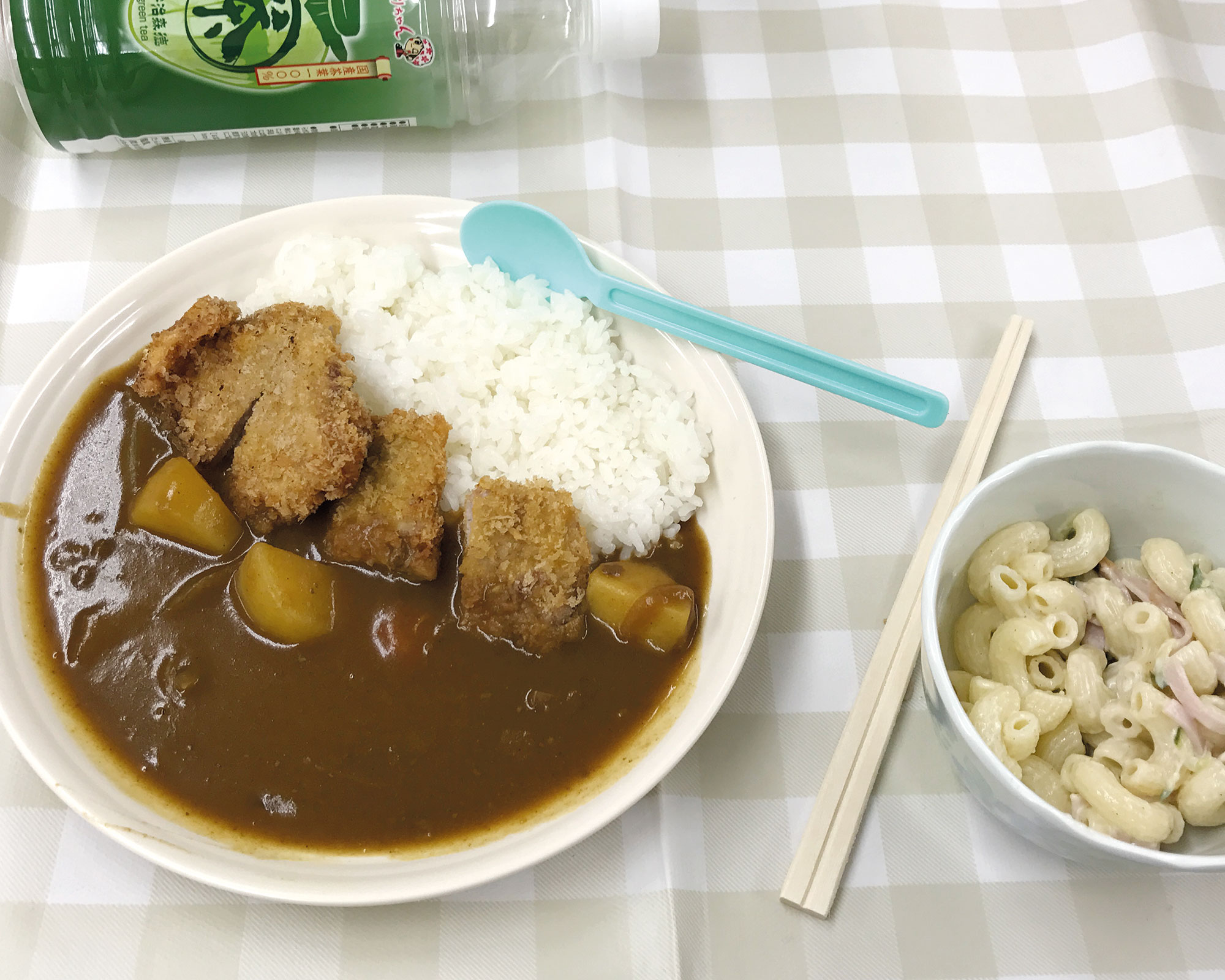
To encourage healthy social eating and alleviate child poverty in Japan, children’s canteens or ‘kodomo shokudō’ often seek out heartwarming foods that also fit in a small budget. Here, curry rice with pork cutlet and macaroni salad. Ayaka Nomura
People believe that parents are the eminent source of children’s experience and information about food, even as extended family, friends, media, school, and their living environment have played extraordinary roles in educating children. Diversifying and expanding our understanding of how, and from whom, children learn about food is even more important in our rapidly urbanizing world. This project, supported by the Toyota Foundation, sought answers about how young people can be self-empowered to preserve and protect traditional food culture and biodiversity through their own enjoyment and appreciation, rather than only through linear knowledge transmission.
Factory Workers in Cambodia
14 hours per day, 6 days a week.
One of the most common reasons mentioned for why people do not have time to cook meals is that they are too busy or their lifestyle prevents it. Arguably, textile factory workers (sometimes referred to as sweat shop workers) face some of the most challenging of such conditions: often working 14 hours per day, 6 days a week. Yet, our initiative exploring the dietary livelihoods of such workers reveals entirely the opposite conclusion: social living, combined with comprehensive private-sector fresh food marketplace, leads to economically and nutritionally efficient dietary outcomes. Young people coming into adulthood not only learn how to cook, but to do so under adverse conditions that create strong culinary resilience for the future.
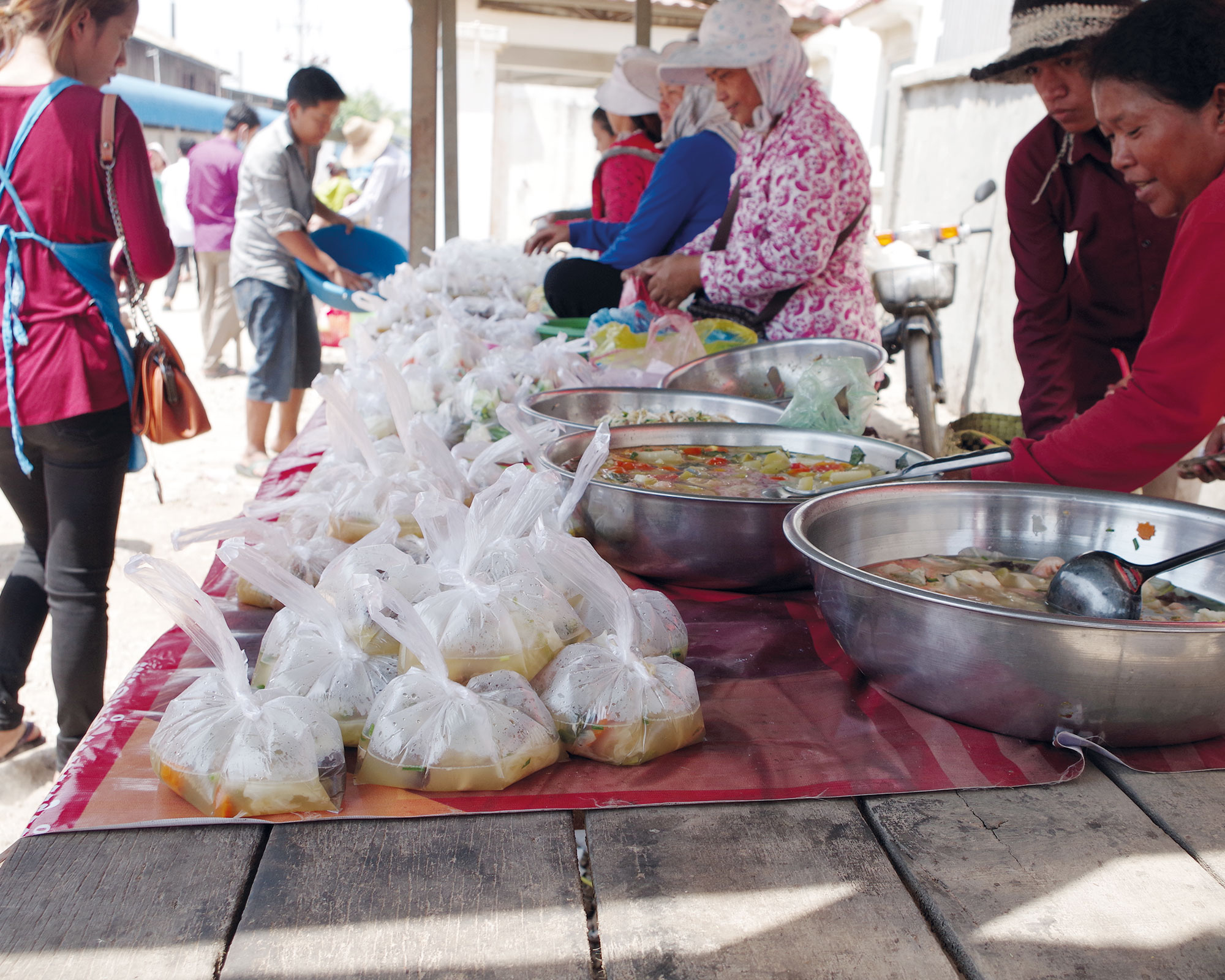
Facing major barriers to balanced eating, including long working hours, minimal kitchen equipment, and limited cooking experience, the unique infrastructure and social living environment encourage rapid development of food skills in young workers. Pictured here are healthy soups to-go, providing economical and traditional lunch options despite the stressful environment. Hart Feuer
Culinary School
Empowering young learners to decolonize their understanding of cuisine.
While young culinary students are traditionally taught a narrow frame of hospitality, including hotel food, Western cuisine, and pastry baking, young minds are also well-equipped to re-imagine the role of traditional vegetables in modern cuisines. By asking students to compete to come up with creative foods that would attract young people like themselves, we empower young learners to decolonize their understanding of cuisine and help society chart a way forward for the persistence of traditional vegetables in future diets.
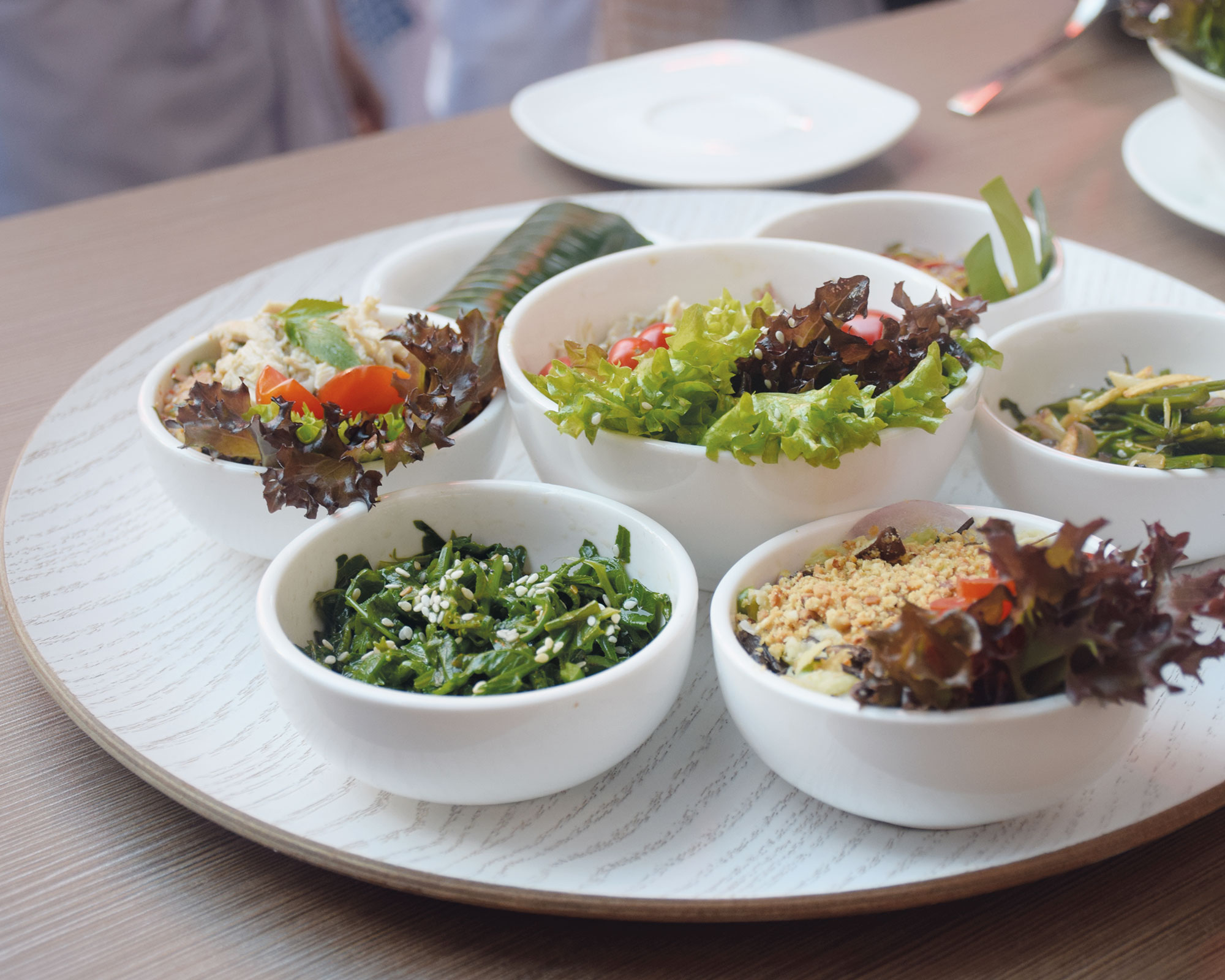
Hospitality and culinary institutes usually teach an elite mode of food preparation, but the venue can also be transformed into a space for empowering young people to decolonize their understanding of cuisine. Pictured here are student designed creations blending global and indigenous plants in a hospitality program in Kuala Lumpur, Malaysia. Kean Buan Tan
Children’s Canteens in Japan
Engage private people in community-based food provisioning for vulnerable people.
When Japan first publicly released statistics about the extent of child poverty in 2009, it sent a shockwave throughout the nation – shattering the complacent idea that prosperity had equitably spread to all levels of society. From 2014, a civil society movement emerged to address this issue called kodomo shokudou (こども食堂 – Children’s Canteens) that sought to engage private people in community-based food provisioning for vulnerable people (including elderly!). While the pioneering efforts have been inspirational, the movement’s growing pains have revealed the usual dangers when a social movement becomes formalized and institutionalized by government and corporations.
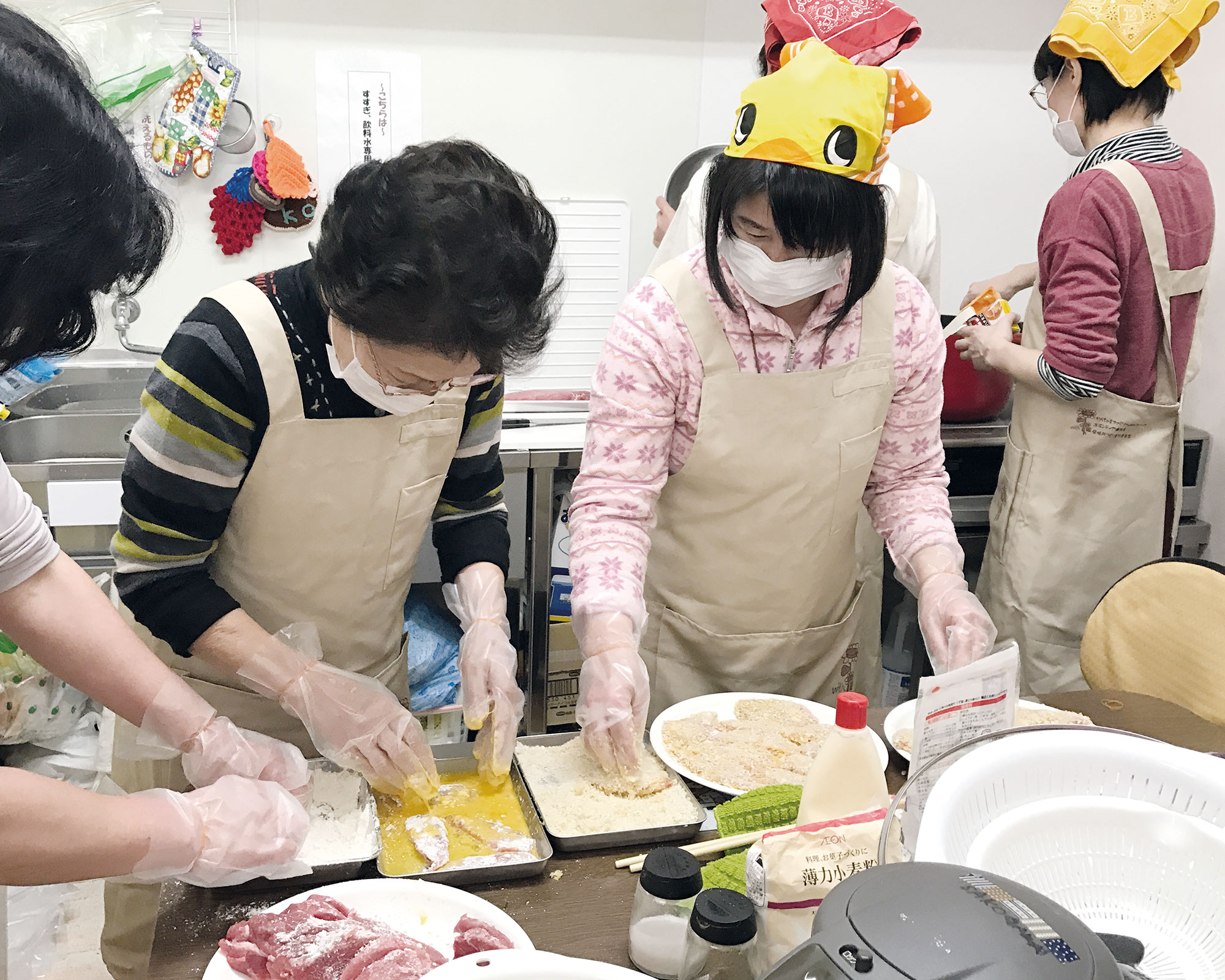
The wave of so-called ‘kodomo shokudō’ in Japan emerged out of anguish at the high child poverty rate, with average people stepping outside of usual cultural boundaries to invite children, elderly, and other vulnerable people into their homes and workplaces for social eating. As the movement consolidates, it has become institutionalized in unexpected ways. Ayaka Nomura
Output
Generations of Food Knowledge Brochure
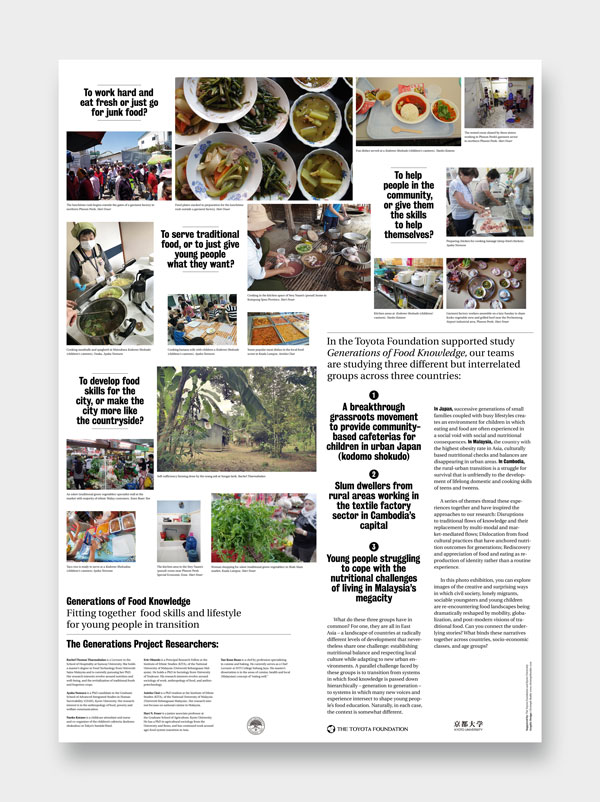
Bitte noch eine Caption finden und in einer schönen Word-Datei für mich bereitstellen, sieht einfach besser aus, thanks a lot.
Gallery
Exhibition
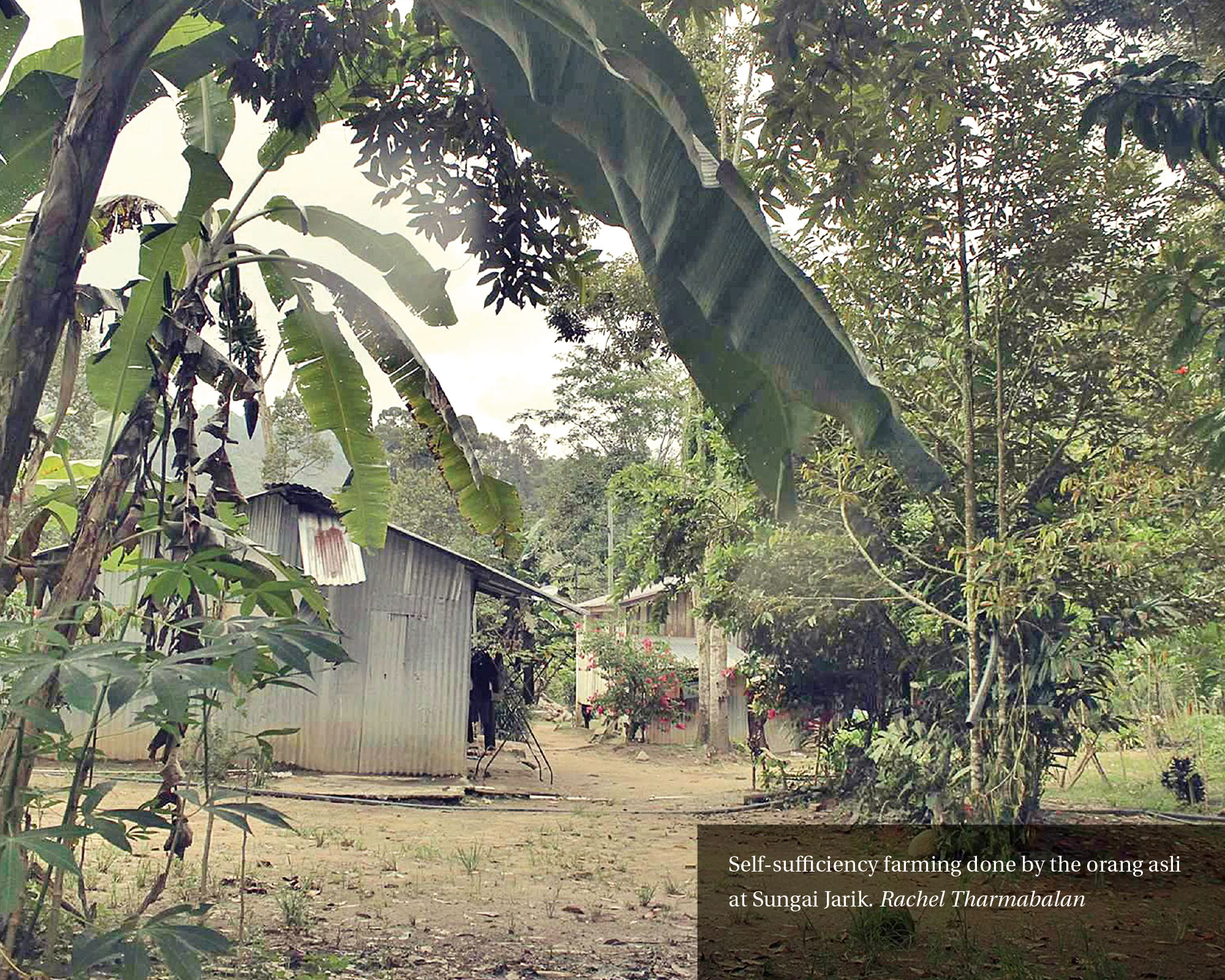
Bitte noch eine Caption finden und in einer schönen Word-Datei für mich bereitstellen, sieht einfach besser aus, thanks a lot.
Publications
‘Urban Brokers of Rural Cuisine: Assembling National Cuisine at Cambodian Soup-Pot Restaurants’, Feuer, Hart N., Austrian Journal of South-East Asia Studies, Special Issue: The Sovereignty of Food and Health, 8(1): 45-66. https://doi.org/10.14764/10.ASEAS-2015.1-4
Open Access
PDF
‘Conventionalization of informal, community-led responses to Japan’s food poverty crisis’, Feuer, H.N., Nomura, A., in McGreevy, S. et al. (Eds.) Food baskets for post-growth Japan: revaluing informal and wild food practices as provisioning systems, Canberra: Australian National University Press (In Contract).
ISBN
‘Assessing the Sustainability of Community-led Responses to Japan’s Food Poverty Crisis’, Feuer, H.N., Nomura, A., in Olmedo, E., Kay, Rachel C.S. (Eds.), Food and Society in Asia Pacific: Taste, Culture, Education, pp. 373-385. Kuala Lumpur: KITA-UKM Press.
Open Access
PDF
‘A SKAD ethnography of educational knowledge discourses’, Hornidge, A.-K., Feuer, H.N., in Keller, R., Hornidge, A.-K., Schünemann, W. (Eds.), The Sociology of Knowledge Approach to Discourse, pp. 149-165. London: Routledge.
ISBN
9781315170008
Division of Natural Resource Economics,
Graduate School of Agriculture, Kyoto University, © Hart N. Feuer
Get in touch
info@heritagefoodliteracy.com